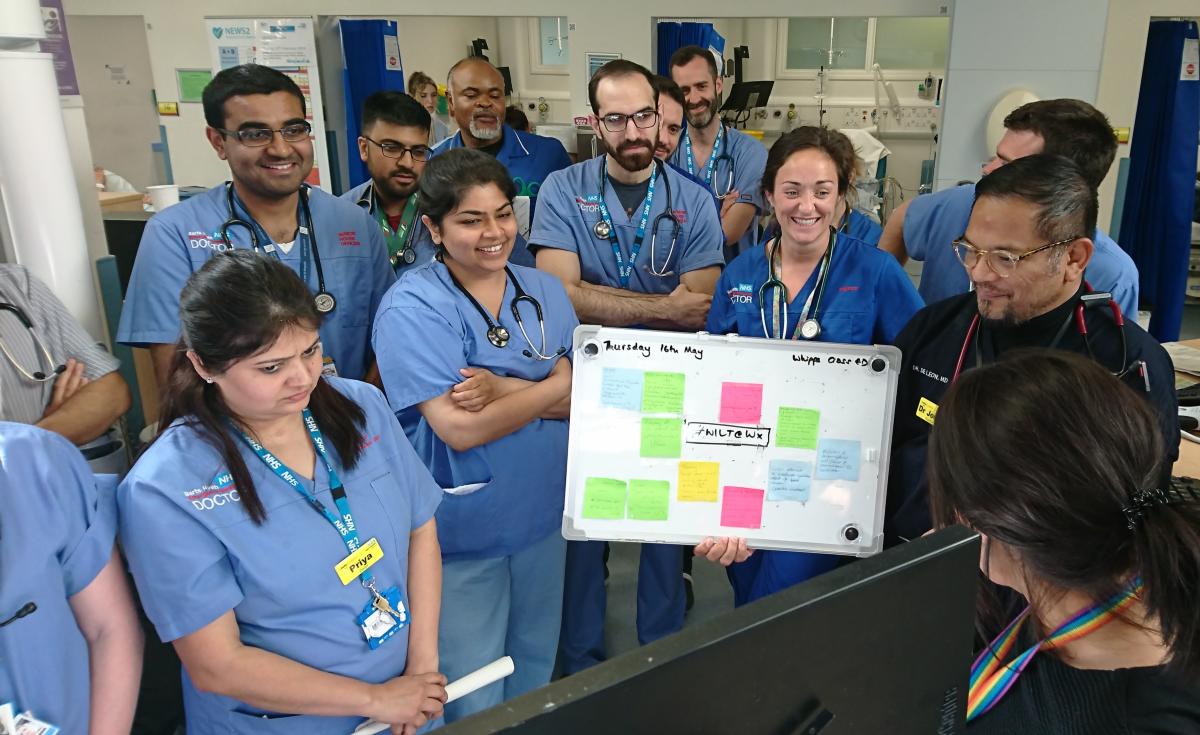"What I learnt today at Whipps Cross"

We all know how busy and pressured our emergency departments are. One of the many challenges this creates is that it can feel like there is no time to teach.
Yet our trainee doctors need education to progress in their careers as well as to stay motivated and to keep patients safe. So how do we provide it?
The emergency department at Whipps Cross has been taking part in an exciting national pilot to find new ways to ensure that trainee doctors can receive their workplace education.
Navneet Johal from Newham and Shabana Issa from the Royal London were appointed as clinical educators for Whipps Cross emergency department (ED). As they were external to Whipps Cross, they had no competing demands and could focus exclusively on their educational work.
Dr Johal and Dr Issa soon discovered that they would need to spend most of their time on the “shop floor” supporting trainees to learn while they were working with patients.
They also found that teaching and learning was happening all the time in the ED, but that trainees didn’t recognise it as education, because it was not taking place in a classroom setting.
Dr Johal and Dr Issa looked around the country to find tried and tested methods of providing education in busy workplaces and have introduced an idea called “post-it pearls”. Trainees are encouraged to write on a post-it note each time they learn or are taught something in the ED, and stick it to a whiteboard. Dr Johal or Dr Issa gather the trainees around the whiteboard once a day to discuss the day’s ‘pearls’ with the group. As well as helping trainees to learn, this has also increased their morale.
The team call this process WILT@WX or "What I learnt today at Whipps Cross." It has had overwhelmingly good feedback from trainees and consultants. Other specialty doctors now join the WILT@WX board rounds, as do nurses, ambulance staff and the non-clinical team.
Since WILT@WX was introduced, the trainees have become much more enthusiastic about their personal development. Dr Johal or Dr Issa now get lots of questions about portfolios, careers and educational resources. The trainees make excellent suggestions for more learning opportunities and these are welcomed and incorporated into the working day. The clinical educators value the connections they are forming with trainees.
Over four months, the trainee doctors completed 175 workplace based assessments in real-time using a computer on wheels with immediate meaningful feedback. Previously, they rarely managed to do any of their assessments “live” because of service pressures.
The clinical educators initiative has been so successful that the education academy and Barts Health Trust have agreed to fund it for a further 6 months
Dr Johal said, “it has been a privilege to have dedicated time to invest in training doctors. The ability to provide meaningful pastoral care to colleagues is incredibly rewarding.”
Dr Issa said, “the clinical educator role gives consultants a great opportunity to learn from the new generation of doctors, such as using apps. I think it could be a great solution to consultant burnout.”
